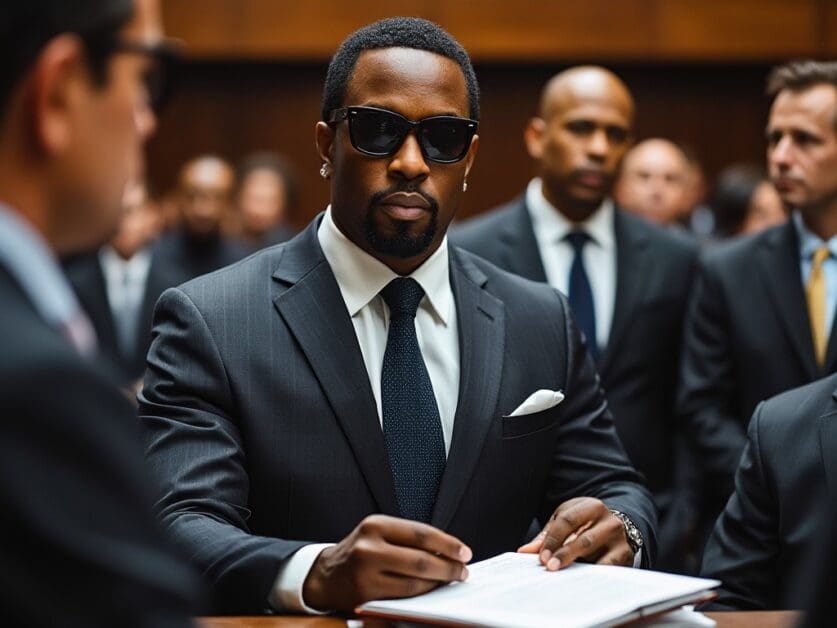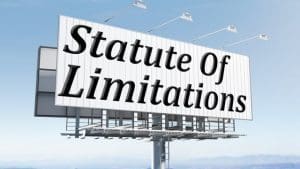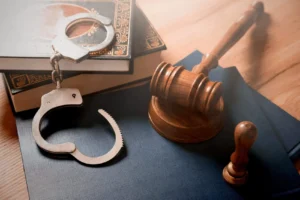Sean “Diddy” Combs Legal Troubles: Exploring Allegations and the Criminal Charges Against Him
Sean “Diddy” Combs, an icon in the music and business world, finds himself embroiled in a legal battle that has far-reaching consequences. The charges against him—ranging from racketeering to sex trafficking and kidnapping—are as serious as they are shocking. As these allegations unfold, they raise important questions not only about the legal processes involved but also about power dynamics in the entertainment industry and how celebrities are held accountable.
This article delves into the intricate legal details surrounding Diddy’s criminal charges, exploring the accusations, the defense’s approach, and the potential repercussions for Diddy’s career and reputation. We’ll also discuss the broader implications for the entertainment industry, including issues of accountability, exploitation, and the legal precedents these charges could set.
Understanding the Criminal Charges Against Sean “Diddy” Combs
Sean “Diddy” Combs faces an array of criminal charges, each of which carries significant legal consequences. These charges can be broadly categorized into racketeering, sex trafficking, kidnapping, and physical abuse. Each of these charges will require a detailed legal defense, as they come with severe penalties and can tarnish Diddy’s public image, potentially ending his decades-long career in music and business.
Racketeering and the Criminal Enterprise Allegations
One of the key charges against Diddy is racketeering, which involves the operation of a criminal enterprise for illegal purposes. The prosecution has alleged that Diddy ran a complex network of illegal activities that included sex trafficking and forced labor. Under U.S. law, racketeering is prosecuted under the Racketeer Influenced and Corrupt Organizations Act (RICO), a law often used to prosecute organized crime.
For Diddy, the racketeering charge represents more than just an accusation of illegal activity; it ties him to an organized and sustained criminal operation. Prosecutors argue that Diddy’s wealth and influence allowed him to create a structure that facilitated and concealed the illegal acts he’s accused of committing. The racketeering charge could carry a prison sentence of up to 20 years if he is convicted, along with hefty fines and asset forfeiture.
Racketeering cases are notoriously difficult to defend, as they rely on establishing a pattern of criminal behavior over time. This charge is particularly damaging because it suggests that Diddy’s actions were not isolated incidents, but part of a broader criminal enterprise. The prosecutors will need to prove that the crimes, including sex trafficking, were systematically carried out with Diddy at the helm of the operation.
The Sex Trafficking Allegations
Perhaps the most explosive aspect of the case is the sex trafficking allegations. Diddy is accused of facilitating an extensive sex trafficking operation in which women were coerced into attending drug-fueled parties where they were sexually exploited. Prosecutors allege that these operations, sometimes referred to as “freak offs,” involved the use of threats, manipulation, and drugs to force women into these situations.
The sex trafficking charges are rooted in allegations that Diddy used his influence and wealth to arrange for the transportation of women across state lines for the purpose of sexual exploitation. In the eyes of the law, this is a particularly egregious crime, and if found guilty, Diddy could face severe penalties, including up to life imprisonment.
The prosecution’s case hinges on testimonies from women who claim they were victimized by Diddy’s actions. They allege that Diddy and his associates lured them to parties under false pretenses, then drugged and coerced them into participating in illegal sexual activities. These claims are backed by evidence, including videos and photographs allegedly taken during the events, as well as testimony from former employees.
Kidnapping and Forced Labor Allegations
In addition to the racketeering and sex trafficking charges, Diddy is also accused of kidnapping and forced labor. These charges relate to incidents where individuals were allegedly held against their will and forced to participate in activities they did not consent to. According to the indictment, Diddy used threats of violence to coerce individuals into compliance, a tactic that prosecutors claim was a hallmark of his broader criminal enterprise.
One incident cited by prosecutors involved the alleged kidnapping of a woman who refused to comply with Diddy’s demands at one of his parties. The woman claims she was physically restrained and threatened until she agreed to participate. Such claims, if proven, would significantly bolster the prosecution’s case and further tarnish Diddy’s image.
Kidnapping is a serious federal offense that carries a maximum sentence of life in prison, and the forced labor charges add another layer of severity to Diddy’s legal woes. If convicted on these counts, Diddy faces decades behind bars.
Defense Strategies in Diddy’s Legal Battle
Facing such serious charges, Diddy’s legal team, led by renowned defense attorney Mark Agnifilo, has laid out a robust defense strategy. Agnifilo has publicly stated that Diddy intends to fight these charges vigorously, and the defense will focus on discrediting the prosecution’s evidence and witnesses.
Challenging the Prosecution’s Evidence
One of the key tactics in Diddy’s defense is to challenge the credibility and admissibility of the prosecution’s evidence. Agnifilo has already suggested that the prosecution’s evidence, including video footage and witness testimonies, may be unreliable. The defense will likely argue that some of the evidence was obtained unlawfully or is otherwise inadmissible in court.
For example, in cases involving digital evidence, the defense may challenge how the evidence was collected, claiming that it was obtained without proper legal authorization. Additionally, they may argue that the individuals testifying against Diddy have ulterior motives, such as financial gain or personal vendettas, which could cast doubt on their credibility.
Negotiating Plea Deals
While Diddy’s legal team has publicly stated that they intend to fight the charges, plea negotiations could still be an option, particularly if the prosecution offers reduced charges in exchange for a guilty plea. Plea deals are common in high-profile cases where the risks of a lengthy and public trial are significant. However, for Diddy, accepting a plea deal would likely result in significant reputational damage, as it would imply an admission of guilt.
Should the defense and prosecution enter into plea negotiations, it would likely focus on reducing the most serious charges, such as racketeering and sex trafficking, in exchange for a guilty plea on lesser charges. A successful plea deal could result in a shorter prison sentence and reduced financial penalties, though it would still carry long-term consequences for Diddy’s career.
Public Perception and the Impact on Diddy’s Career
Regardless of the outcome of the legal case, the allegations against Diddy have already had a significant impact on his public image. In an era where the court of public opinion is often as powerful as the legal court, the mere existence of these allegations has led to widespread condemnation.
Media Coverage and Reputation
The media coverage surrounding Diddy’s case has been intense, with every new development making headlines. The allegations of sex trafficking, in particular, have drawn sharp criticism from advocacy groups and the public, many of whom have called for boycotts of Diddy’s business ventures. For a figure as prominent as Diddy, whose brand is built on his public image, this type of negative attention can have lasting effects.
The potential damage to Diddy’s career is compounded by the fact that these charges align with broader societal movements aimed at holding powerful men accountable for sexual misconduct. In recent years, the entertainment industry has been rocked by similar allegations against other high-profile figures, leading to a reckoning within the industry. Diddy’s case is likely to be viewed within this larger context, making it difficult for him to rehabilitate his public image even if he is acquitted.
Financial and Business Implications
Diddy’s legal troubles also have significant financial implications. In addition to potential legal fees and fines, Diddy could face losses in terms of business opportunities and endorsements. Many companies are hesitant to associate with individuals facing such serious allegations, and Diddy’s business ventures, including his music label and clothing line, could suffer as a result.
The entertainment industry, particularly the music industry, is known for its close ties to public perception. If Diddy is convicted or even if public sentiment continues to turn against him, it could result in the dissolution of lucrative contracts and partnerships.
Broader Implications for the Entertainment Industry
The legal case against Diddy is not just about one man—it has broader implications for the entertainment industry as a whole. In recent years, there has been a growing focus on holding powerful figures accountable for abuses of power, and Diddy’s case fits into this larger movement.
Accountability in the Entertainment Industry
Diddy’s case highlights the ongoing issue of accountability within the entertainment industry. For years, powerful figures have been able to operate with relative impunity, shielded by their fame, wealth, and influence. However, recent cases involving figures like Harvey Weinstein and R. Kelly have shown that the tide is turning, and the public is no longer willing to tolerate abusive behavior from industry leaders.
If Diddy is convicted, it could serve as a powerful reminder that no one is above the law, regardless of their status or wealth. It could also encourage other victims of abuse to come forward, knowing that there is a greater likelihood that their allegationsto be heard.
Setting Legal Precedents for High-Profile Cases
The charges against Diddy, particularly those involving sex trafficking and racketeering, have the potential to set legal precedents for how future cases in the entertainment industry are handled. If Diddy is convicted, it could encourage prosecutors to pursue similar cases more aggressively, especially in instances where wealthy individuals use their resources to evade accountability.
Conversely, if Diddy is acquitted, it may raise questions about how effectively the legal system can prosecute high-profile figures, particularly when wealth and influence come into play. Regardless of the outcome, this case will likely be studied closely by legal experts and could influence how future cases involving similar charges are prosecuted.
Conclusion
Sean “Diddy” Combs’ legal troubles have captivated the public’s attention, and the outcome of his case will have far-reaching consequences. From the criminal charges of racketeering, sex trafficking, and kidnapping to the public scrutiny surrounding the allegations, Diddy’s legal battle is one of the most high-profile cases in recent memory. His defense team will work tirelessly to challenge the charges, but the evidence presented by the prosecution paints a troubling picture of a criminal enterprise orchestrated by one of the entertainment world’s most powerful figures.
Beyond the courtroom, Diddy’s case raises important questions about accountability, power, and justice in the entertainment industry. The charges against him are serious, and the outcome of this case could set the tone for how future allegations of abuse and misconduct are handled in the world of music and entertainment.
As the trial unfolds, one thing is clear: the legal landscape for celebrities is changing, and this case could be a pivotal moment in that transformation.




















